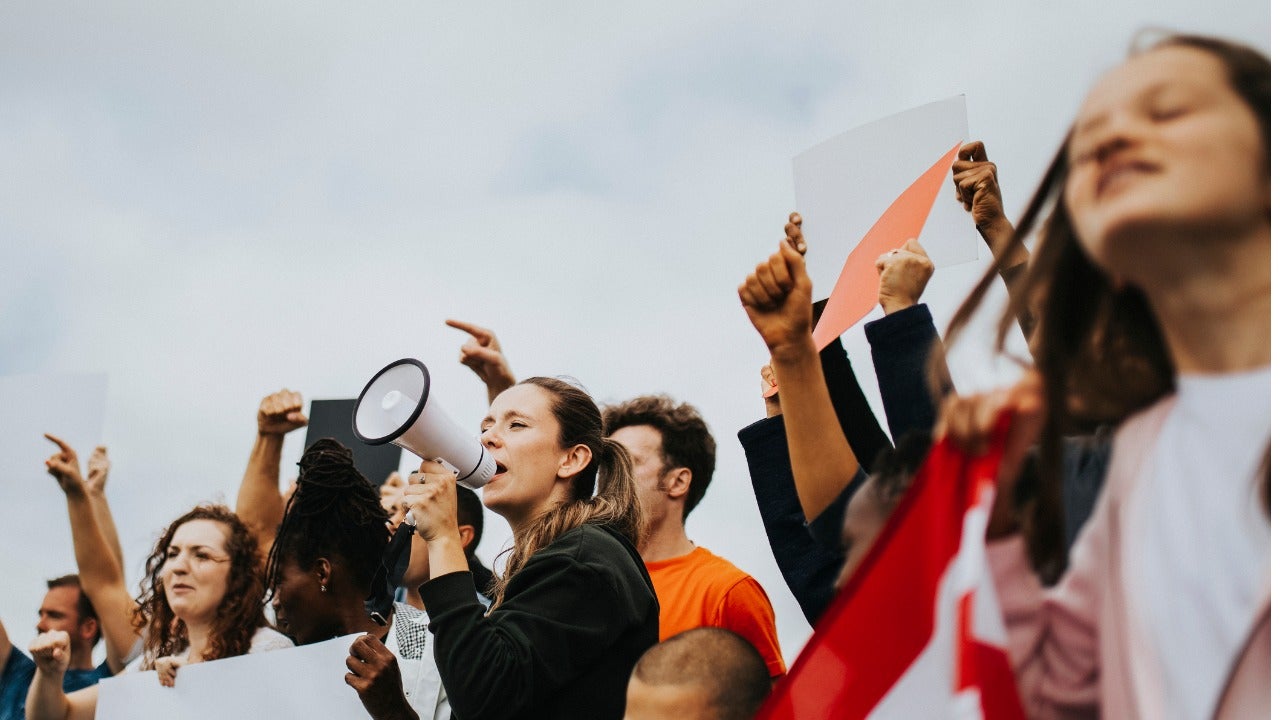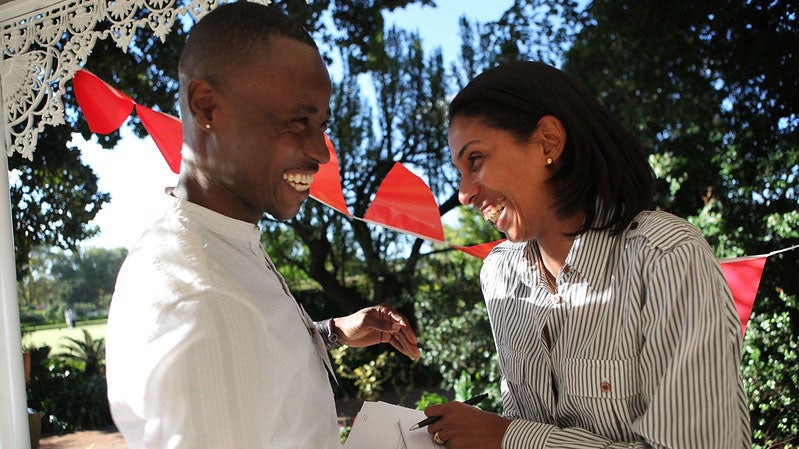Women are nowhere close to equal to men in the United States. They are underpaid. They are underrepresented in government. Their work is undervalued. And the burdens of a functioning society—domestic labor, childcare, healthcare, education—fall disproportionately upon their shoulders.
Yet in every modern election cycle, pundits and strategists fret over the need to win over some particular demographic of women—usually some simplistic, monolithic model like “soccer moms” or “security moms.” However antithetical the messaging, everyone can acknowledge that women are a driving force in American democracy.
It’s been a century since American women won their fight for the right to vote. In recognition of the anniversary of the 19th Amendment and the associated (if incomplete) revolution it ushered in, the McCloskey Speaker Series invited three powerful women leaders to speak. Katherine Grainger, Ai-jen Poo, and Cecile Richards are each individually accomplished. Together with Alicia Garza, they launched Supermajority, a home for women’s activism.
Grainger reminded the audience that a hundred years ago women said they weren’t looking for political power; they were “trying to create a world where [they] can elect better men, and whether that was a strategy or the actual truth, it’s been a prophecy.” Until Americans understand the mistakes made by early advocates of enfranchisement—especially the sidelining of Black women who were integral to the movement—we won’t be able to create a representative modern movement.
Like every other dysfunctional aspect of the American system, the pandemic has exposed long-standing issues that affected women. “I think all of us will agree that things weren’t great for women going into the pandemic,” Poo said. “There were certainly chronic crises that we were dealing with, everything from structural racism to the epidemic of low-wage work where women were disproportionately concentrated.”
Richards agreed. “We are structurally not set up in this country for women to be full participants—in government, in the workforce, in anything,” she said. And things don’t seem to be improving. “Delta Airlines got more money in the bailout than the entire childcare industry.”
The conversation was hopeful, historical, and at times hilarious. Frank exchanges such as this have been a summer staple of life in Aspen, Colorado, since 1945, when the groundwork was laid for what would become the Aspen Institute. Lectures, meetings, and conversations are a highlight of the Rocky Mountain summers, and residents and guests fill tents and auditoriums as hundreds more watch online. This year, all of that conversation takes place on Zoom and YouTube, but the intimacy of the events has been preserved.
“One of the hallmarks of these programs has always been the candid conversations that are held on stage, and our audience values the chance to ask questions,” said Cristal Logan, vice president of Aspen Community Programs. “It’s a rare opportunity to see leaders close-up, and sometimes hear intimate opinions and thoughts about the state of our society and the day’s news.”
Aspen Community events continue throughout the summer and early fall; to participate in the Q&A portions, preregistration is required. See the full schedule here.


